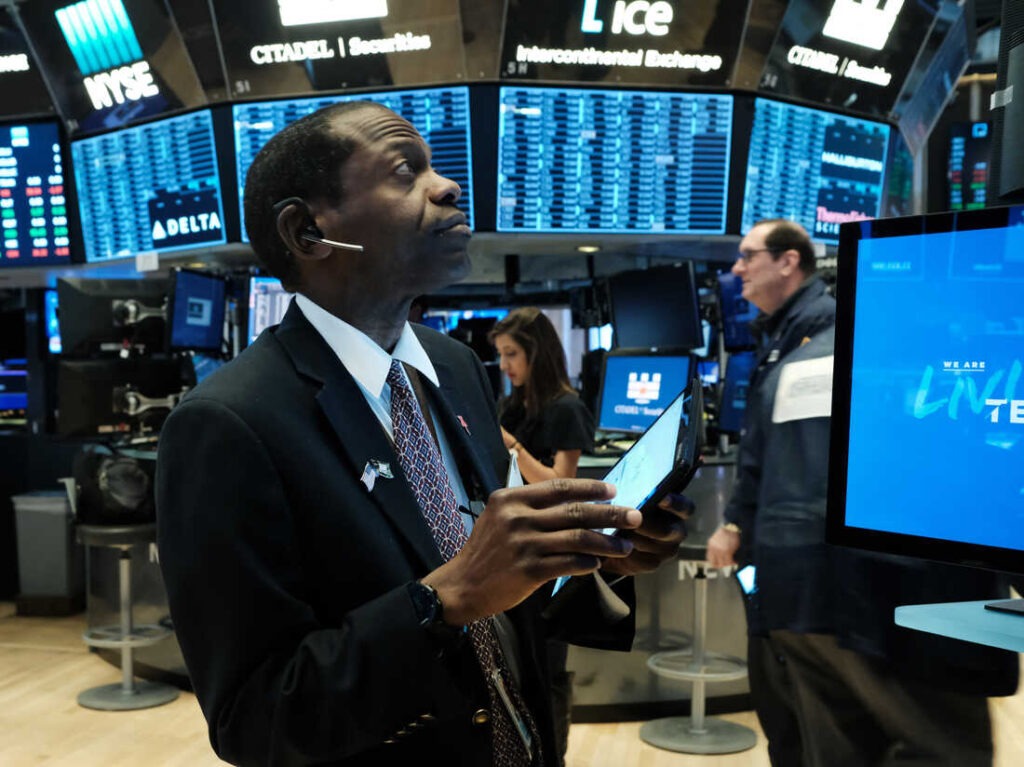US shares closed mixed on the first day of Q2, with the S&P 500 down 0.2% and the Dow Jones retreating from its 40,000 level. Nasdaq edged up 0.1%, supported by gains in AMD and Micron. European markets were closed for a bank holiday. Investors awaited data like the jobs report for economic insights. Tesla led losses, while Alphabet and Meta rose. FedEx fell 3.3% on news of its USPS contract expiration, and MicroStrategy shares dropped 4% after executive share sales.
Summary for 02.04.2024
- Asian equities rose on Tuesday, with Japan's Nikkei climbing past 40,000 points, and MSCI's Asia-Pacific index up by 0.65%. Chinese shares were mixed, while Hong Kong's Hang Seng Index surged over 2% after reopening from a holiday. Investor sentiment was buoyed by signs of economic recovery but tempered by uncertainties surrounding Fed rate cuts.
- European bourses are expected to open higher, with investors awaiting manufacturing and inflation data after holidays. However, caution prevails in the US market due to rising Treasury yields and anticipation of economic updates, including job openings data.
- Oil prices rose in early Asian trading, supported by improved demand signs and escalating Middle East tensions. Brent futures for June delivery climbed to $87.79 a barrel, while the May contract for US WTI crude futures reached $84.03. Strong US and Chinese manufacturing data signalled rising oil demand. Concerns about potential supply disruptions heightened following an Israeli strike on Iran's embassy in Syria. OPEC will review output cuts during an online meeting on Wednesday.
- The March meeting minutes of the Reserve Bank of Australia underscored the decision to keep the cash rate steady at 4.35%, aligning with their strategy to gradually restore inflation to the 2–3% target and support full employment. Highlighting the importance of preserving labour market gains, recent economic indicators were in line with expectations, with balanced risks and uncertainty.
- The ISM Manufacturing PMI in the US rose to 50.3 in March, up from 47.8 in February, surpassing market expectations of 48.4. This marked the first expansion in the manufacturing sector after 16 months of contraction. Positive demand trends were observed, with new orders and export orders indices showing expansion, while backlogs remained in moderate contraction.
- Shares of China's Xiaomi surged up to 16% this morning following the debut of its sporty electric vehicle, reminiscent of Porsche models. Xiaomi's founder Lei Jun's EV ambition materialised with the launch of the SU7 sedan, attracting strong demand evidenced by extended waiting periods and immediate sell-out of special "Founder's Edition" models.
- Microsoft is set to globally offer its Teams app separately from its Office suite, aligning with a similar move in Europe to address regulatory concerns. Meanwhile, Jefferies analysts highligt Microsoft as the top AI winner in the generative AI cycle, citing its robust position in both infrastructure and application sectors. Other beneficiaries include Alphabet, Amazon, Meta Platforms, and CrowdStrike.
- UBS analysts reported a 4% year-over-year decline in global iPhone sales in February, citing softness in the US and China. Despite Counterpoint Research's earlier suggestion of a 24% reduction in Chinese sales, UBS notes a 16% YoY decline, attributing it to strong performance by local brands. They maintain a 51 million sell-in unit outlook for the March quarter.
- UPS secured a significant air cargo contract with the United States Postal Service (USPS), becoming its primary provider, as FedEx walked away after failed negotiations for improved terms. Financial details were not disclosed. FedEx's decision shall result in a loss of nearly $2 billion in annual business but could lead to reduced air capacity and potential long-term benefits.
- Bank of America reaffirmed its confidence in Nvidia and Broadcom, citing the growing adoption of accelerated/AI servers as a generational shift. The bank sees potential opportunities in other AI chip vendors like Marvell, Micron, and AMD, anticipating volatility but profitable niches as the market expands.
- Wells Fargo added Amazon to its Q2 2024 Tactical Ideas List with an Overweight rating, raising the price target to $217. They anticipate a beat and raise in Q1 results driven by the new Fulfillment by Amazon fee structure and strong trends. AWS checks indicate continued acceleration in Q1.
- Alphabet's shares have risen 8% this year, trailing behind peers and the broader market. Jefferies analysts highlight concerns over AI's long-term impact on search revenue, leadership uncertainties under CEO Sundar Pichai, and lagging growth in Google Cloud. Despite these issues, analysts believe in Alphabet's potential for recovery.
- Chinese EV manufacturers Li Auto, Nio, and Xpeng reported notable increases in March deliveries. Li Auto delivered 28,984 vehicles, Nio delivered 11,866, and Xpeng delivered 9,026. BYD, the largest EV producer globally, achieved an impressive 302,459 unit sales. Despite positive growth, challenges persist due to fierce competition and the emergence of new rivals like Xiaomi.
- Bank of America's Sell Side Indicator (SSI) rose to 55% in March, indicating growing sentiment but not reaching euphoria levels. The SSI historically serves as a contrarian indicator, suggesting potential gains of +13% over the next 12 months. The firm expects the Fed to cut interest rates in June, potentially driving a shift from cash to equity income.






